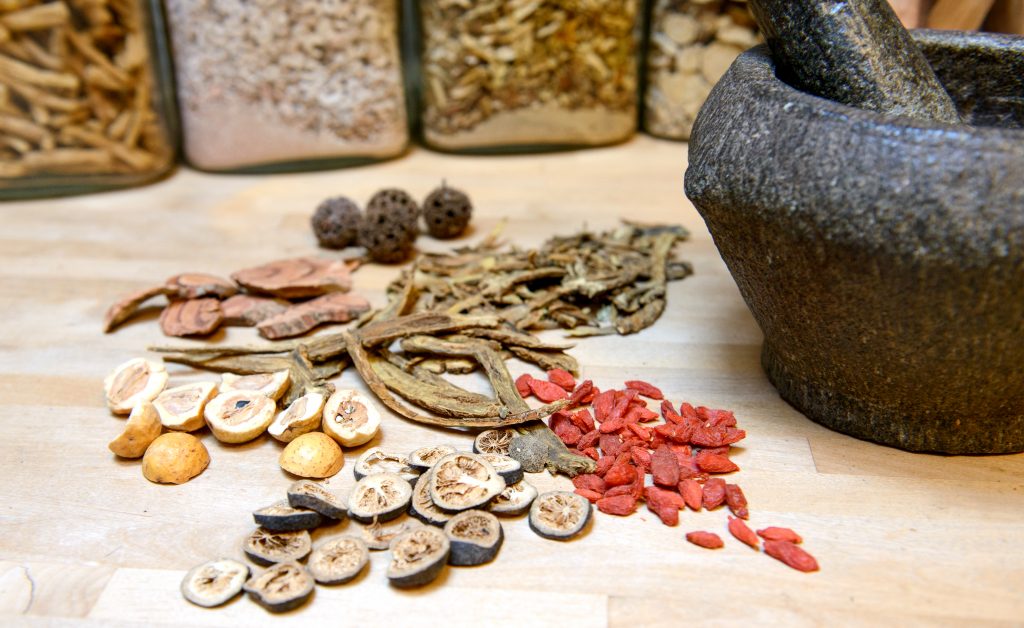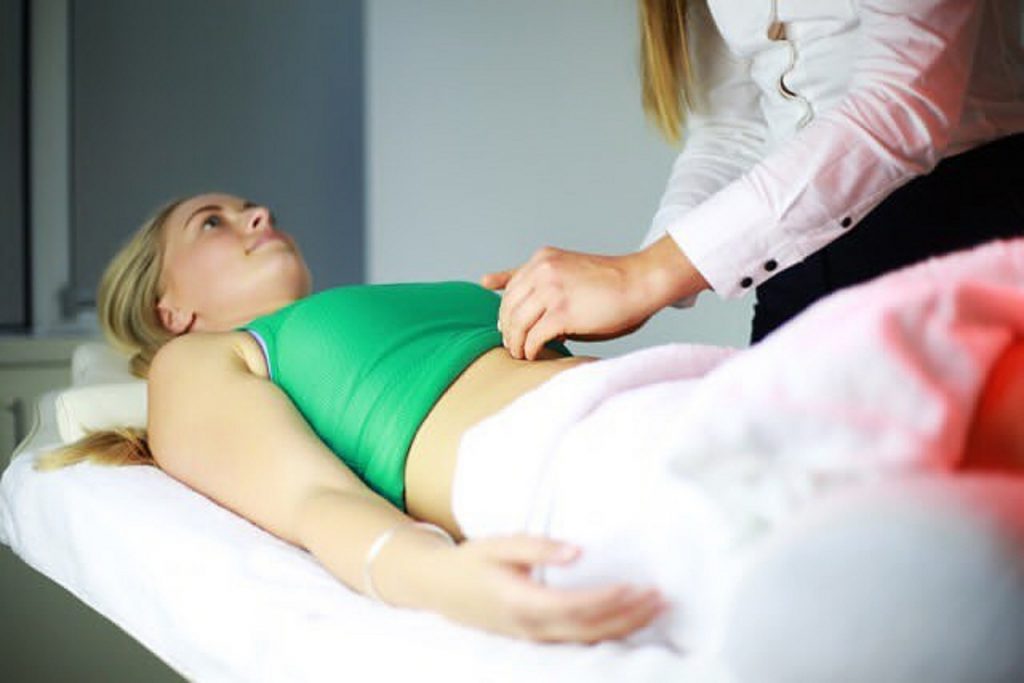
Nervous Stomach Anxiety: yin/yang explanation
Why You get Nervous Stomach Anxiety and How to Handle It. Acupuncture has great ways to help.

Key Learning Points
Allergy Induced Asthma causes huge difficulties for many people: shortness of breath, tight chest, waking breathless in the night, problems when running outside … and socially embarrassing.
Science has discovered many of the chemical or hormonal triggers behind allergy induced asthma, but scientists don’t really know why it’s become so common.

In the schools I attended from the age of 4 to 18, I remember nobody with asthma. I don’t say they didn’t exist, but I wasn’t that unobservant and I remember nobody.
A friend who was at the same school with me from age 13 – 18 and who subsequently trained and then practised as a doctor in General Practice until he retired, says he remembers perhaps one boy who had difficulties breathing.
That was in the early 1960s in a school with over 800 boys.
I don’t remember anyone with allergies or skin problems, either.
Most of us came from middle-income families, but our parents had all survived the Second World war, giving birth to us shortly after it ended.
They were the survivors, but many of them were, for years, very tired after the war.
I’ve asked lots of people in my age group with similar backgrounds about their experiences.
While some remember one or two people with occasional mild breathing difficulties, nobody seems to remember anyone with asthma.
Some teachers now tell me that between one quarter and one third of their classes often contain students needing medicines for asthma, their breathing, for skin problems or for allergies.
So something has happened since the 1960s.

Just in case you’ve strayed onto this page by mistake, this site is about Chinese medicine in English and how it can often explain many modern health problems and diseases.
Chinese medicine has many ways to treat patients, including acupuncture, herbs, moxibustion, cupping and so on. They are very different to the tools of modern ‘Western’ medicine. You have to approach it with an open mind.
To quote the World Health Organisation:
“Asthma attacks all age groups but often starts in childhood. It is a disease characterised by recurrent attacks of breathlessness and wheezing, which vary in severity and frequency from person to person.”
Here we run into a problem. Chinese medicine doesn’t have an exact equivalent to ‘asthma’, but it does to the symptoms of
In fact, almost always, in Chinese medicine, the emphasis is on the symptoms rather than the disease.
Why the symptoms, not the disease?
Because that’s a more practical way to do it, not least because you can then ask specific questions about the symptom. For example, if you and I both have the common cold, caught from the same person and with the same virus.
In which case, you’d be classified in Chinese medicine as having an ‘invasion’ of Wind-Cold. I would have an invasion of Wind-Heat. That’s a vital distinction in theory and when it comes to treatment!
When it comes to how Chinese medicine would deal with each of us, although we have both caught the same virus, our bodies have reacted to the ‘common cold’ in different ways.
That leads to different ways of treating them and believe me, it makes a difference.
In this example, from the point of view of Chinese medicine, taking an aspirin or paracetamol would NOT be a good idea for you. It wouldn’t be the best way for me either, but just a few aspirins wouldn’t mess up my system as much as they might yours.
Indeed, for you, these common medications might prolong your misery even if they temporarily made life a little easier.
Likewise,
… these would have totally different approaches in Chinese medicine!

Very often, asthma sufferers also have skin problems. In Chinese medicine, as in Western medicine, there’s definitely a reason for this. (Read more about asthma causes and the reasons for it here.)
What is it? For a start in Chinese medicine your Lungs rule both your skin and your breathing.
On this page we’re concentrating on allergy induced asthma. So if allergy induced asthma is not your problem, try one of the following:
Allergy Induced asthma often, or usually
Very often, the allergens that prompt an attack include:
Once you become sensitive to the above, you find in addition you may become sensitive to other allergens including:
Whether you become sensitised to these other allergens may, in my humble opinion, depend (for some) on whether you received orthodox treatment to de-sensitize you to the earlier triggers.
It is almost as if your body, when former allergens are denied it, seizes on something else to be ‘allergic’ to.
Allergic reactions come in various forms.
To me, a ‘real’ allergic reaction is serious and produces an anaphylactic reaction that can be life-threatening.
However, we now associate the word ‘allergic’ with reactions that produce a hypersensitive reaction: not even remotely anaphylactic. Read more here.
Don’t confuse these with reactions due to stress or exhaustion!
For example, I remember one holiday when my wife and I took our two very small children, one of them an infant, on holiday.
During the frantic weeks up to our departure, when we were both working very long hours and then getting less sleep than usual at night, my body had less tolerance to bread, coffee and alcohol.
However, after a week’s holiday in a warm climate where the children seemed happy to play almost unsupervised and then slept all night, I found even refined white bread was a delight, I could drink as much coffee as I liked without regrets, and alcohol in moderation seemed to do me no harm.
I had just been tired, and my body complained at any small extra load I imposed on it!
This kind of asthma occurs when your bronchi start over-reacting to circumstances which can be
Chinese Medicine mostly explains these under breathlessness and wheezing. See also asthma causes, below.
Commonly, a respiratory infection can weaken the lungs making them more susceptible to asthma.


Stay in Touch!
No spam, only notifications about new articles and updates.

Book a Video consultation if you want to know more about your symptoms
Wheezing is a frequent symptom of asthma. How does Chinese medicine explain it?
The following contains some technical terms. I hope you don’t find them too difficult to understand.
There are two situations.

Asthma, in terms of breathlessness and wheezing, has been around for thousands of years. But the ancients seem not to have recognised allergy induced asthma much, or at all, when the classic texts were written 2500 years ago. Perhaps it didn’t occur back then.
It is only recently that it has appeared, but not in people living traditional lifestyles, or not at least until they adopt a ‘Western’ way of life or move to Western countries.
So what is it about the Western way of life that produces allergy induced asthma? And why?
Greater minds than I have held these matters in deep contemplation for 50 years, but with few agreed answers.
And it must be said that I don’t think Chinese medicine has comprehensive solutions yet either, but it does have ways of looking at it that perhaps deserve consideration. Some of the following also follows Japanese acupuncture theories which though based on the original Chinese texts have explored them somewhat differently.
Some of these ideas help to explain possible Western medicine reasons for the asthma. The following doesn’t pretend to be a completely inclusive list. Some people violently oppose the suggestions, and some suggestions are elephants in the room that nobody in orthodox science or medicine dare question.
All of them are considered to contribute to a deficiency in the Kidney’s defensive Qi system, so inclining people towards asthma.


No doubt readers will have their own views. If you have a contribution to make on allergy induced asthma or on asthma causes in general, please use the form at the bottom of the page on asthma causes.

Why You get Nervous Stomach Anxiety and How to Handle It. Acupuncture has great ways to help.
Subscribe to the Newsletter
If you are interested in understanding how Traditional Chinese Medicine can improve your life sign up to my newsletter for the latest updates.
Subscribe to the Newsletter
If you are interested in understanding how Traditional Chinese Medicine can improve your life sign up to my newsletter for the latest updates.
6 Responses
This is a topic which is near to my heart… Cheers! Where are your contact details though?
For contact details see ‘About’ in the headings at the top of the page, likewise for a video consultation or to visit me in person in my clinic.
I agree the media is hyping it up. I’m all for survival of the fittest.
Thank you for your comment. Not everyone will agree that ‘survival of the fittest’ is the best way forward, but in the end, those who survive carry forward our genes. That means that medicine needs to think about helping people to produce babies with the best genes and not suppressing every unpleasant symptom. See our page on ‘Suppression‘.
This site certainly has all of the information I needed concerning this subject and didn’t know who to ask.
I’m glad you find our site useful! THank you for your comment.